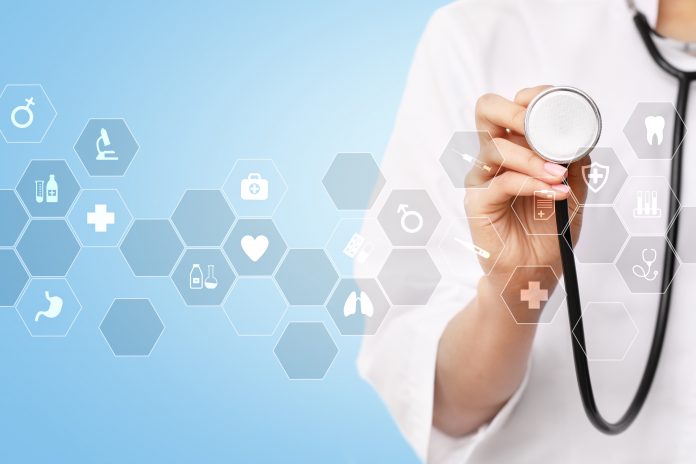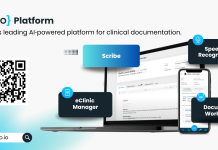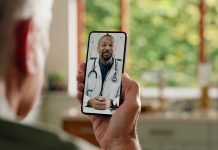Here, Fraunhofer Germany discuss how COVID-19 has driven the adoption of digital health technologies, and offers solutions aiding healthcare professionals to keep up
Humanitarian and economic needs following the Sars-CoV2 pandemic are driving the development and adoption of new health technologies. This is particularly the case in areas such as supporting epidemiological intelligence with datasets, identifying cases and the clustering of infections. Many health-related technologies that create, capture, interpret and integrate health-related data have been integrated into public-health systems without even being tested nor peer-reviewed. Budd et al. postulate that successful and sustainable implementation strategies will require carefully accelerated and coordinated policies, with collaboration among multiple areas of governments, regulators, companies and patient groups.
Though, there is an urgent need for an alignment of international strategies for the regulation, evaluation and usage of digital technologies. They have the potential to transform the health care sector by empowering patients, promoting health and wellbeing through personalised apps and delivering care outside of traditional healthcare settings via remote monitoring.
This ambitious vision needs educated health professionals and transformative leadership to accelerate the implementation of digital health technologies.
What types of “health technologies” are in question?
Artificial Intelligence, robotics and digital medicine including telemedicine, smartphone apps or sensors and wearables for diagnostics will change the roles and functions of the clinical workforce over the next decades. Sensors and wearables bring diagnostics closer to the patient. Self-monitoring by using Bluetooth-enabled glucometers linked to smartphones can enable the patient to have better self-management. Since Sars-CoV2 Telemedicine has grown significantly. Talking to clinicians from a distance using telecommunication offers a huge advantage in delivering high-level care and also reduces non-attendance rates.
The next step will be to share patient-generated data automatically to enable remote monitoring. This needs to be integrated in the clinical pathway with trained clinicians to get the best outcome of this huge amount of data.
Patient-generated data sources and clinical data such as images are also materials for predictive analytics. Modelling using machine learning applied to electronic patient record data could predict multiple medical events such as the local identification of older people at risk of adverse health outcomes and care home admission. Digitised medical scans are becoming readily available to train deep learning systems and can be used in dermatology, radiology, ophthalmology and pathology.
The fusion of digital medicine, AI and robotics will enable health workforces to deliver a more holistic approach to personalised healthcare and disease prevention. This leads to better operational efficiency and patient outcomes and improved quality and efficiency of interactions between patients, the healthcare workforce and -systems.
Is the healthcare workforce prepared for a digital transformation?
Legally proved health technologies will enable working within an ethical and legal framework to deliver a more holistic approach to personalised healthcare and disease prevention. Since the new “Digital Healthcare Act” in Germany, the implementation of digital technologies is underway. In Great Britain, the NHS stated in their report from 2019 that health professionals need to be trained in the coming decades due to emerging technologies within the health market.
The challenge will be to evolve new skills and incorporate evidence-based guidance into clinical practice through a greater understanding of the relationship between treatment and patient outcomes. Nevertheless, the current workforce needs more intensive training to ensure that they are equipped to implement digital technologies in their fields of work.
How can Fraunhofer Germany help to educate health workforces?
The Fraunhofer Academy’s “Transformative digital skills for healthcare” is a fully online qualification programme exploring the intersection between health and technology. It is designed for clinicians, health practitioners and all those working in professional roles within the health sector. Fraunhofer Academy collaborates with Oxford Hospitals NHS Trust, University of Barcelona and four Fraunhofer Institutes, our leading scientists in medical technology and health professional education. Through our programme, healthcare professionals will benefit from NHS health system expertise in digitising healthcare in the clinician work field, combined with the science quality of Fraunhofer Germany.
Our main learning objectives are to foster an understanding of transformative health technologies and their impact on healthcare so that healthcare professional can anticipate the impact of new technology in their own workplace. The participants learn to measure the value and benefit of digital technologies to increase operational efficiency and improve the health of their patients as well as deliver better care. A central part of our design, therefore, is the application of comprehensive use cases for the hospital of the future. The use cases allow generating hands-on experience and a transfer into daily business directly.
Whether upskilling or taking the career in a new direction, our program will give you the skills to emerge health technology to improve health outcomes in your work field.
Transformative Digital Skills for Healthcare Programme: Core Content
The training programme consists of eight core modules (M1-M8), each with its own specialisations to enable professionals to lead projects and apply digital technologies in the health and care sectors. For example, M3 addresses the use of smart devices such as automated medical robots which can support innovators and reduce repetitive tasks in clinics, while M6 explores the benefits of machine learning for precision medicine, which aims to improve personalised healthcare. In this module, clients will learn about machine learning tools that allow them to analyse enormous amounts of clinical data and make more patient-centred care decisions.
References
1 Digital technologies in the public-health response to COVID-19, Budd et al.
2 Preparing the healthcare workforce to deliver the digital future, NHS Health Education England
3 Germany’s digital health reforms in the COVID-19 era: lessons and opportunities for other countries, Gerke et al.
Transformative digital skills for healthcare has received funding from the European Union’s HORIZON 2020 Research programme under the Grant Agreement no. 20425.
Please note: This is a commercial profile
© 2019. This work is licensed under CC-BY-NC-ND.











